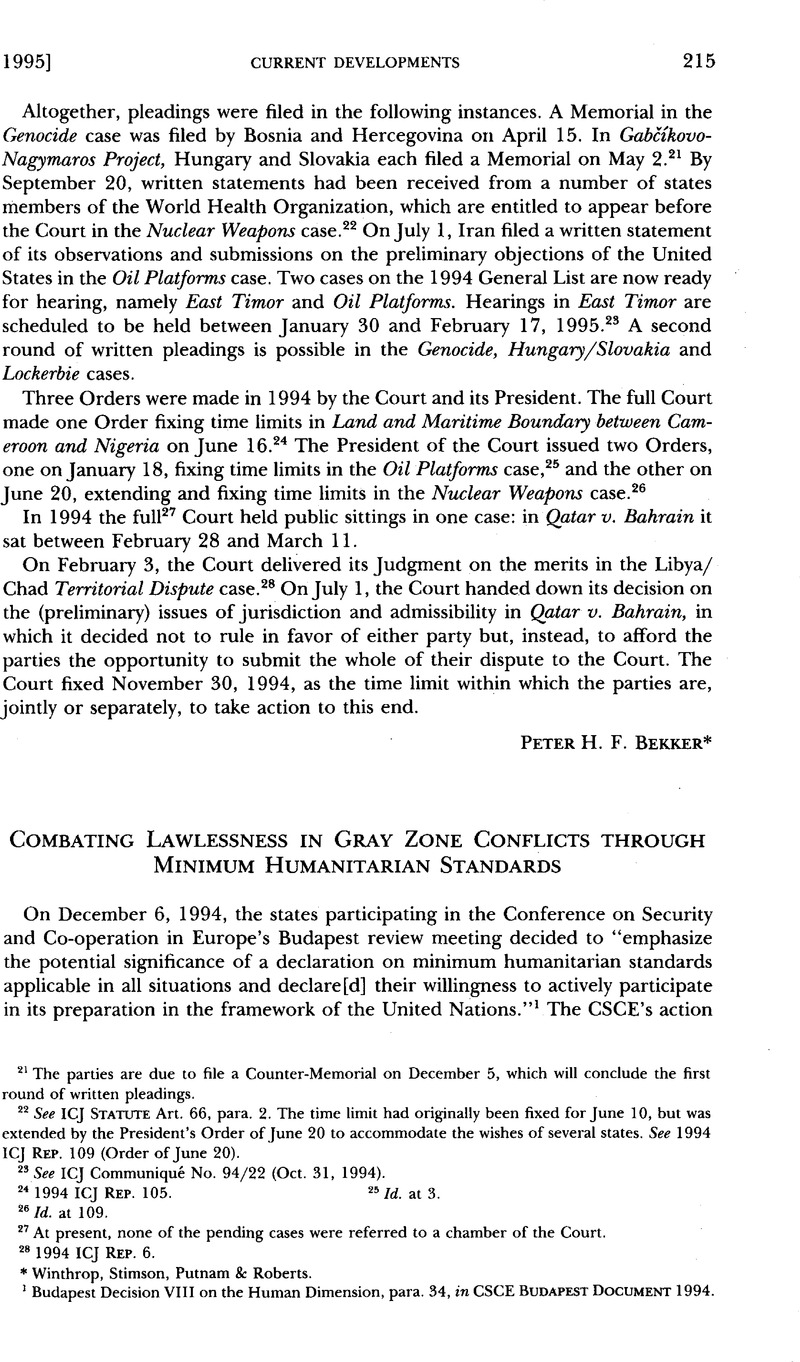Published online by Cambridge University Press: 27 February 2017

1 Budapest Decision VIII on the Human Dimension, para. 34, in CSCE Budapest Document 1994.
2 Res. 1994/26.
3 See Theodor Meron, On the Inadequate Reach of Humanitarian and Human Rights Law and the Need for a New Instrument, 77 AJIL 589 (1993); Theodor Meron & Allan Rosas, A Declaration of Minimum Humanitarian Standards, 85 AJIL 375 & n.1 (1991).
4 This approach attempts to overcome one of the difficulties encountered in applying such human rights instruments as the International Covenant on Civil and Political Rights to situations of internal violence, i.e., that the obligations that it states are addressed primarily to governments (vertical applicability). Unless some obligations are also addressed to the groups fighting either the government or each other (horizontal applicability, Drittwirkung), governments are unlikely to accept and respect minimum humanitarian standards.
5 In neither Rwanda nor Liberia, for example, would the Hague Convention No. IV of 1907 be applicable; nor would the four Geneva Conventions of 1949, except, of course, Article 3, but that is far from enough. The prohibitions of genocide and of crimes against humanity are, of course, applicable. Liberia is not even a party to the International Covenant on Civil and Political Rights. In all of these conflicts, insistence on the application of the minimum humanitarian standards could have made a difference. As regards conflicts such as those in Liberia and Somalia, there is no effective government to which traditional human rights instruments could be addressed.
6 In Bosnia, the international community has chosen to treat the ensemble of the situation in Yugoslavia as an international armed conflict to which the entire corpus of international humanitarian law is applicable, that is, Hague Convention No. IV, and the law on genocide, crimes against humanity and grave breaches of the Geneva Conventions. Apart from the criminal aspects, however, the declaration could have been immensely useful in Yugoslavia.